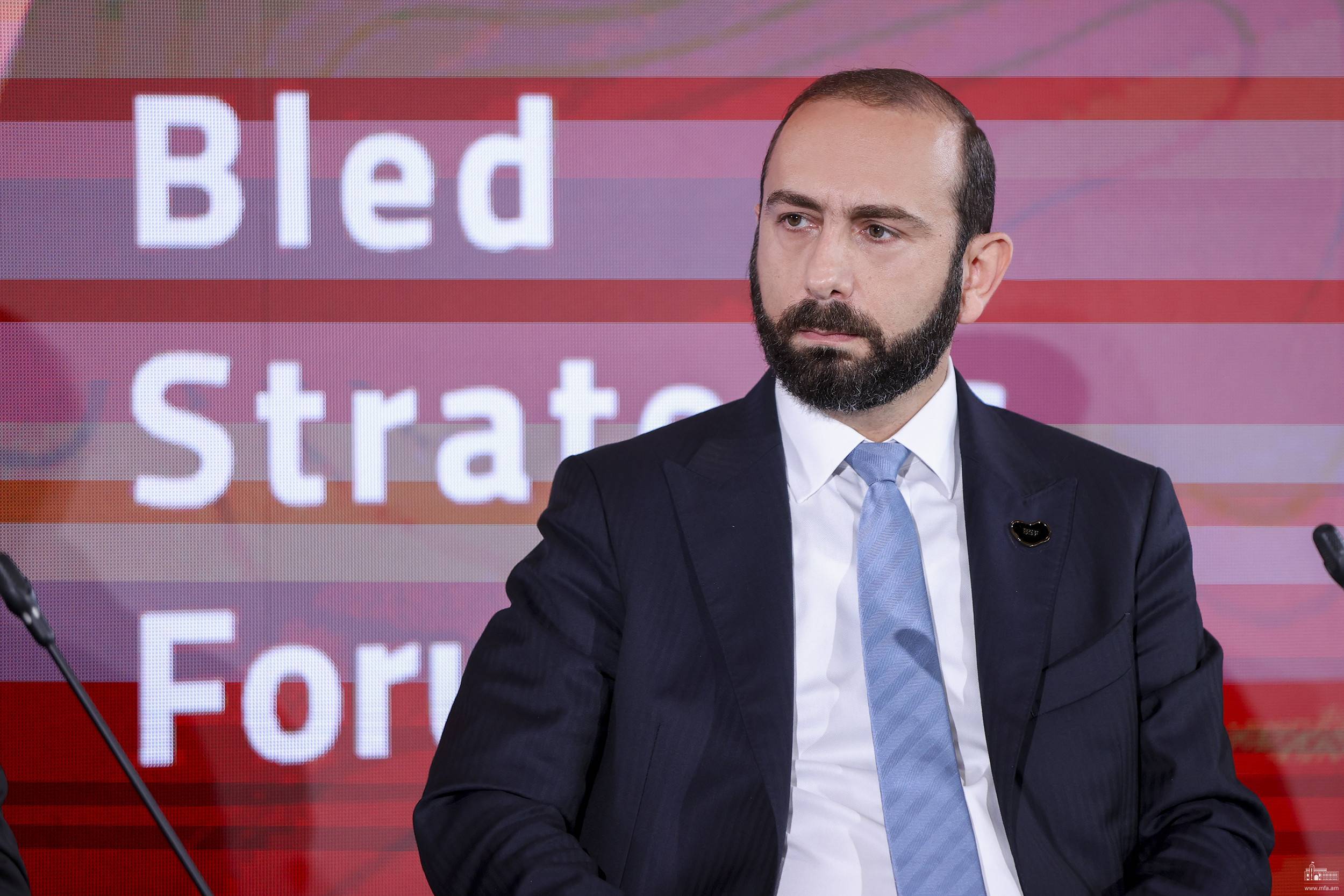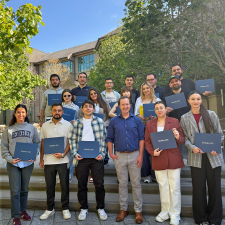On August 29, in the sidelines of the Bled Strategic Forum, Minister of Foreign Affairs of the Republic of Armenia Ararat Mirzoyan participated in panel discussion “New Security Architects. Who?”.
Foreign Minister Mirzoyan’s answers to the moderator’s questions are presented below.
On the sideline of the Forum, Minister Mirzoyan also had bilateral meetings and discussions with other colleagues participating in the event.
Moderator: You come from the region with quite a history of conflicts, but also some “frozen conflicts” are still going on in the region. And as the Ambassador mentioned the structures, institutions, IOs, how do you see the security potential of the existing structures and can they efficiently assist you or would we need something new? What do you think?
Ararat Mirzoyan: Well, first of all, let me join my colleagues in expressing appreciation to Slovenia for organizing this very important forum despite the challenges and the natural catastrophe. For us this is not only an opportunity to exchange thoughts, but also to express our solidarity with the Slovenian people.
So, coming to your question. It isn’t as easy to answer as it may seem at first sight. On the one hand, through the decades, we have had all needed institutions. They have accumulated all the tools and the instruments that are needed or might be needed to manage the crisis and the conflicts. On the other hand, when it comes to the real crisis and conflicts we see that these tools and institutions are not efficient.
So, to make sure that I’ve succeeded in properly drawing the picture for you, I would describe the situation with a real example. You all know about Nagorno-Karabakh, a region in the South Caucasus. As we are speaking, at this very moment, there are 120,000 people who are under real medieval siege due to the blockade of the Lachin corridor which was established to ensure the link between the Republic of Armenia and Nagorno-Karabakh and to ensure free movement for people. This is the only lifeline, the only road that could connect this region to the outer world. It’s been already 8 months that Azerbaijan has blocked this Lachin corridor and since June 15th, it has completely closed the corridor, and now no food, no medicine, no fuel, nothing passes through this corridor to Nagorno-Karabakh. So, once again to make sure that you really understand the situation: approximately 2,000 pregnant women, 30,000 children, 20.000 elderly, people with diseases are left without food, medicine and fuel. Azerbaijan has already cut gas and electricity supply to this region. And there are numerous reactions to this situation by the international organizations, individuals, independent experts, we have the statements of the Secretary-General of the United Nations, we have statements by the UN special experts, Special Rapporteurs, we have statements of reputable organizations such as Human Rights Watch, Amnesty International and many others. We have voices of independent experts such as the former Prosecutor General of the International Criminal Court, we have the Council of Europe. There are so many institutions, so many reputable organizations, bodies, individuals, who stated very clearly that Azerbaijan blocked the Lachin corridor, and, as a result, we have a humanitarian crisis in Nagorno-Karabakh and the risk to have a humanitarian catastrophe there. So what’s next? Nothing. We have two Orders of the International Court of Justice, the highest legal body. We all united as nations and we created the United Nations, and within it or in parallel to it we created this highest legal body, International Court of Justice, and this Court issued two Orders, according to which Azerbaijan should ensure access through this corridor and what happened? Nothing.
So, the problem is not the institutions. We don’t have a lack or absence of institutions, we need something else. I believe there is a lack of political will and there is a lack of respect for the rules, and not only by the one who violates the rule, but also by all of us. We all should feel the responsibility for respecting these rules, because alternative to this is chaos, because alternative is a situation when might is right, and you know there always can be someone stronger than you.
Answering your question, I would like to come up with another question: are we OK with this situation and what are we going to do with it?
Moderator: You are an experienced politician now, so where do you see the role of politics nowadays in security, and do we need to change something in the approaches that politicians nowadays actually exercise?
Ararat Mirzoyan: Well, I wouldn’t call myself an experienced politician, but…
Moderator: I do.
Ararat Mirzoyan: Thank you. Dear participants, I’m so sorry to spoil this very beautiful conversation and discussion, but my impression is that when we say “security”, we mean security only for major powers. When we say “dignity”, we speak about dignity for big players. Or at least you should have the size of Poland to have the right to be a part of this conversation and to have expectations. I am very much impressed by your intervention, Secretary-General, but you can’t fix the house until you acknowledge that the problem is not only the war in Ukraine. I’m not a doctor, I’m, as you heard, an experienced politician, but I know that the first and probably one of the most important steps is the diagnosis. You can’t fix it without giving the correct diagnosis. Probably the very direct, sincere and obvious answer to your question, because everybody knows the answer in reality, is a real, value-based policy, a real human-centrism, the solution is politics and policies focused on human beings. I think this is the answer.















